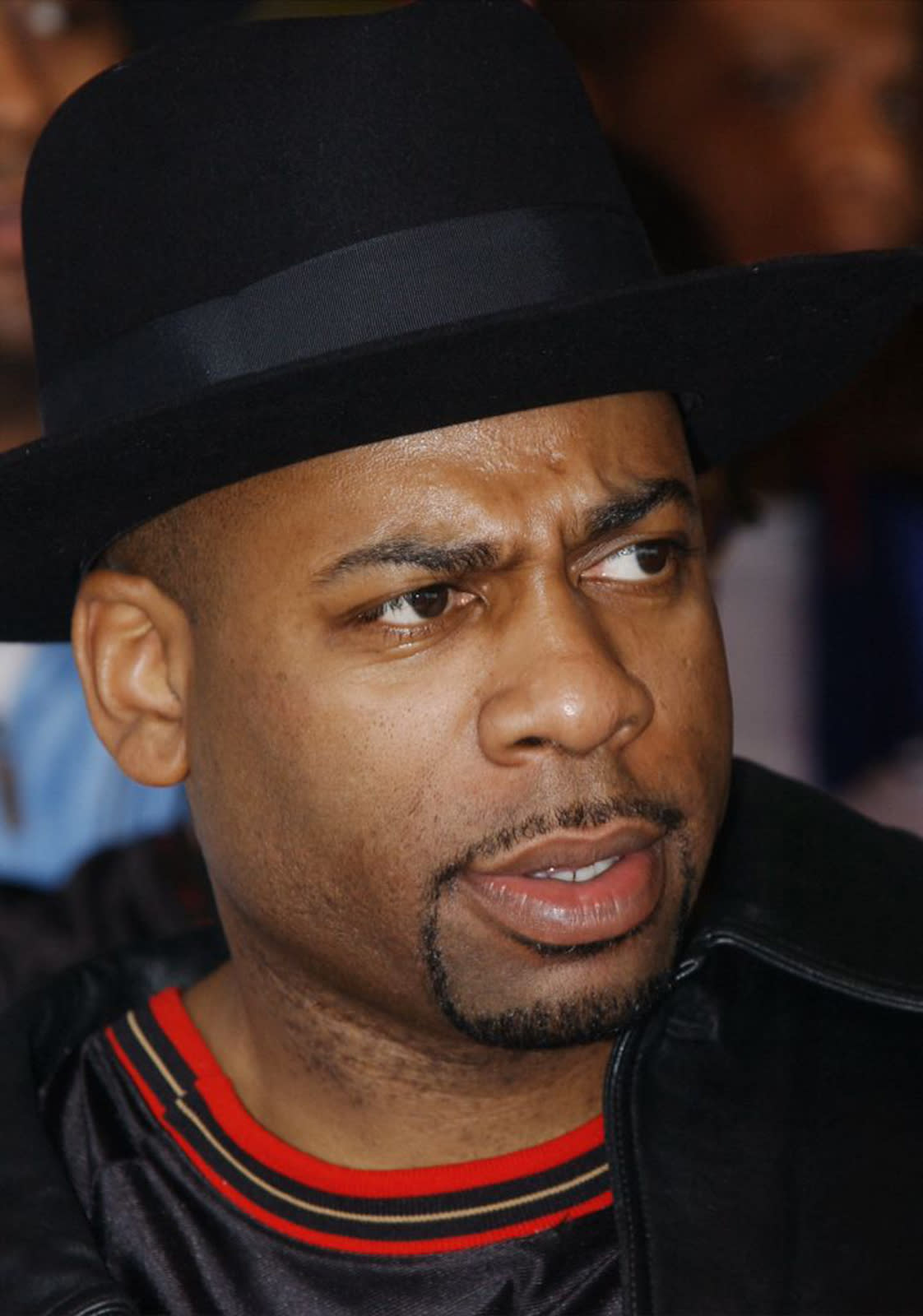Accused Jam Master Jay killer boasted he would ‘kill him again,’ trial witness says

- Oops!Something went wrong.Please try again later.
NEW YORK — A man accused of fatally shooting hip-hop icon Jam Master Jay bragged that he wanted to “kill him again” about two years after the murder, the suspect’s former roommate testified Monday.
Witness Cherubin Bastien, 65, told a federal jury he moved in with accused killer Karl Jordan Jr. in 2004, renting a room at Jordan’s father’s house in Queens for about $300 a month.
The murder of Jam Master Jay, real name Jason Mizell, came up in conversation twice during the nine months Bastien and Jordan lived together.
Jordan, who goes by the nickname “Little D,” and Ronald “Tinard” Washington, are on trial in Brooklyn Federal Court for Mizell’s long-unsolved Oct. 30, 2002, murder.
Prosecutors allege that the duo barged into Mizell’s music studio on Merrick Boulevard in Hollis and Jordan shot the Run-DMC co-founder in the head in front of one of his close friends and his business manager, while three others heard the chaos from behind the closed door of a nearby control room.
Bastien said he was an everyday heroin user in 2004 and driving a cab in Queens when he moved in with Jordan in 2004. On almost every weekend, he drove Jordan and two others to Upper Manhattan in a small Chevrolet Astro van.
It was on one of those trips, while Bastien was driving and Jordan sat in the front passenger seat, that the topic of Jam Master Jay came up, and Jordan said, “If I got to kill him, I’ll kill him again,” according to Bastien.
The DJ’s murder came up again when Bastien heard Jordan arguing with a woman in the driveway of their Hollis home, as Bastien stood by at his open second floor window overlooking the street.
“He said, ‘I’ll do you like him, like Master Jay,'” Bastien recalled.
Jordan’s lawyer, John Diaz, pressed Bastien on his heroin use, but he denied he was ever high.
“Heroin is very strong isn’t it?” asked Diaz.
“Quite,” said Bastien.
“It impairs you when you’re on it, isn’t that fair to say?” asked the lawyer.
“Not really,” Bastien answered.
Later, Bastien told the defense lawyer, “I never get high, sir. I get a fix.”
Bastien, who was deported to Haiti in 2007, said he was contacted by law enforcement officials in February 2021, and acknowledged he received about $1,000 a month in witness assistance money starting in May 2021 for rent, food and a phone so prosecutors could contact him.
He moved from Haiti to the Dominican Republic so investigators could visit, and got money he said was to renew his visa.
The jury also heard from one of Mizell’s close friends, Eric James, a drug dealer living in the Midwest who was subpoenaed to testify.
“That was my best friend, that was my big brother,” said James.
James said he was aware that Mizell — who along with the other members of Run-DMC performed anti-drug lyrics and starred in “Say No to Drugs” public service announcements — occasionally sold drugs.
At some point, because of a “drought” in the cocaine supply, James asked to be connected to Mizell’s supplier, “Unc”.
In 2001 or 2002, James spoke to Jordan about selling cocaine outside a barbershop near Mizell’s studio, while Mizell stood “2 feet away.”
James and Mizell also talked to him about getting 10 kilos of cocaine to set up shop in Baltimore, and complained about how “he gave Tinard some drugs and Tinard messed it up.”
Prosecutors say Jordan and Washington killed Mizell because he cut them out of a 10-kilo drug deal, and last week a Baltimore dealer testified that he refused to do business with Mizell if he was working with Washington.
A day or two before the murder, James recalled, Mizell was visiting him in the Midwest, and the DJ got a call while the two were playing video games.
“Somebody called and started yelling into the phone,” said James. Mizell began yelling back.
“I never heard him talk like that so I paused the game and looked at him.”
James described his friend’s demeanor as “agitated” and said he had heard the name “Tinard” come up.
Assistant U.S. Attorney Artie McConnell asked James if he denied in press interviews that Mizell sold drugs, and he said he had.
“Just trying to protect his legacy, you know?” James said.
_____

